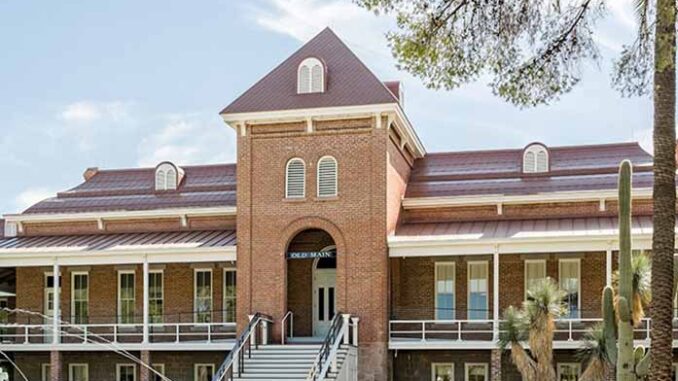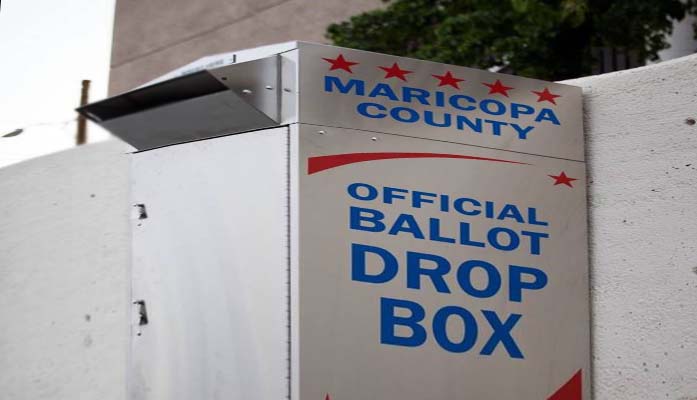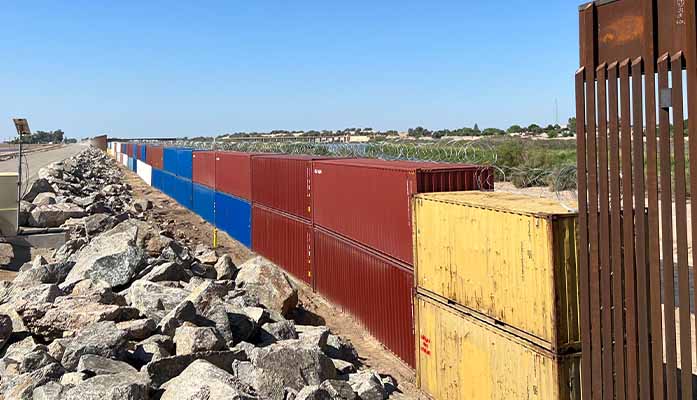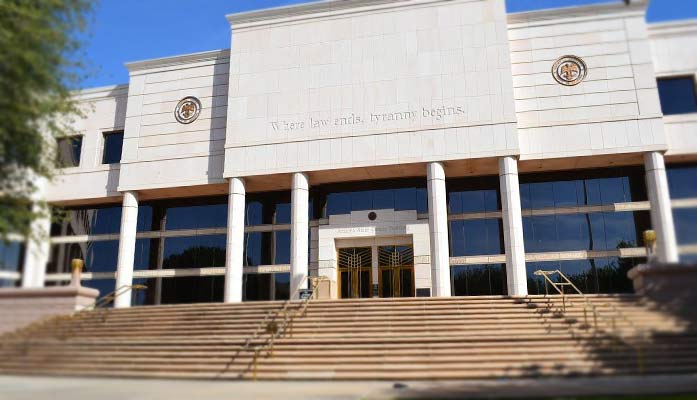
by Corinne Murdock | Aug 28, 2022 | Education, News
By Corinne Murdock |
Records obtained from the University of Arizona (UArizona) revealed that its bias reporting system inspired political correctness witch hunts among students.
UArizona provided the records to a College Fix reporter after initially denying their request for all 2021 reports submitted to the Bias Education & Support Team (BEST). The Goldwater Institute, a Phoenix-based public policy research and litigation organization, sent a letter on behalf of the reporter to UArizona insisting that the university must comply with public records law.
According to the records, a group of students reported one female peer for drawing a darker-toned person picking cotton when she was given the word “cotton” to depict for an Pictionary-like online game. The group complained that they felt “deeply ashamed” of her insensitivity, and wanted the school to help her understand why her actions were hurtful and how she could grow in the future.
“While she claimed that she did not specifically denote the race of the person, the witnesses claimed that she chose a dark brown color for their skin tone,” read the complaint. “[She] claims she was only trying to make a historical reference and did not have discriminatory intent [but] several members of the zoom call told her the drawing was inappropriate.”
“Cotton” is one of the well-known “Five Cs” of Arizona’s economy, in addition to cattle, citrus, climate, and copper.
In another bias complaint, one student reported a professor for using “outdated and offensive” terms: “transsexual,” “transgendered,” and “mentally retarded” during class discussions.
“[P]rofessors should be required and expected to use the modern and correct terminology when discussing these issues, especially when there may be students in the class who have intellectual disabilities or who have friends and family who have intellectual disabilities,” wrote the student.
Another report was filed against a professor for asking a student if she had a green card after the student mentioned that her family lived in Mexico. Another report was filed against a professor who was perceived as supportive of police, failed to exhibit grief over the deaths of George Floyd and Breonna Taylor, and discussed their deaths in the context of shared meanings between cultures.
“The classroom is not an appropriate place to discuss these matters,” the complaint read. “Supporting the police openly in class during such a sensitive time in this country, as well as during Black History Month, was completely unprofessional.”
Another complaint was submitted against a student for expressing that he didn’t want to reside in the same dorm hallway as “trannies,” slang for transgender individuals.
[SEE POST HERE]
Goldwater Institute Vice President of Litigation Jon Riches told AZ Free News that they were pleased that UArizona decided to comply with the law, but troubled that a reporter had to obtain a lawyer in the first place.
“These were public records. It was troubling that they originally denied the request, particularly since they fulfilled a similar records request two years earlier,” said Riches. “Public records custodians will sometimes deny a request despite knowing that they should produce it, hoping the requestor will just go away. It shouldn’t require a lawyer to get involved. The information is public. We’re glad they did the right thing.”
The resistance of UArizona and government entities to records requests prompted the Goldwater Institute to launch an initiative to increase public records compliance: “Open My Government.”
As AZ Free News reported, the UArizona public records coordinator that denied the College Fix records request into BEST, Kim Fassl, has a professional connection with one of the six women leading BEST, or the “Core Team.”
Prior to handling public records requests, Fassl was UArizona’s associate director of residential education for student behavioral education. BEST Core Team leader Nina Pereira was Fassl’s superior at the time, serving as the director of residential education that oversees behavioral education.
BEST says it offers educational and dialogue opportunities, but doesn’t conduct investigations, issue disciplinary sanctions, or require any participation. However, BEST does pass on perceived student or faculty violations of UArizona’s nondiscrimination and anti-harassment policy to higher administrative offices, such as the Dean of Students Office, the Office of Institutional Equity, and Human Resources.
[SEE POST HERE]
Corinne Murdock is a reporter for AZ Free News. Follow her latest on Twitter, or email tips to corinne@azfreenews.com.

by Corinne Murdock | Aug 27, 2022 | News
By Corinne Murdock |
Maricopa County reportedly failed to record one of their unstaffed drop boxes for at least three weeks.
The Maricopa County Republican Committee (MCRC) discovered the error after they requested the video feed for two drop boxes late last month. In response to the request, the county reportedly discovered that they failed to record the unstaffed drop box located at the Maricopa County Juvenile Court. The county reportedly began to record the drop box the day after the MCRC request, on July 28.
MCRC explained in a Saturday press release that the county delayed their request and responded with the wrong video feed initially before admitting that they never recorded the footage due to “a glitch or human error.” They asserted that this mistake only worsened GOP voters’ sentiments about drop boxes.
“Maricopa County Republicans do not trust drop boxes. We have very serious concerns about unstaffed drop boxes. However, we have grave concerns about unstaffed and unmonitored drop boxes where the lack of video recording goes unnoticed for 3 weeks,” said MCRC.
The county confirmed to MCRC that the drop box footage was live-streamed — just not recorded for subsequent review.
MCRC requested that the county decommission the drop box’s further use for the upcoming November election.
MCRC said that the footage of the other drop box, located at the Maricopa County Tabulation and Election Center (MCTEC), contained no concerning issues.
AZ Free News reached out to the Maricopa County Elections Department multiple times for comment concerning the error. They didn’t offer comment or an explanation by press time.
Corinne Murdock is a reporter for AZ Free News. Follow her latest on Twitter, or email tips to corinne@azfreenews.com.

by Corinne Murdock | Aug 26, 2022 | News
By Corinne Murdock |
Arizona may place another major company on a list of prohibited investments for allegedly boycotting the state of Israel. It would be the second company deemed in violation of Arizona’s ban against Boycott, Divestment, Sanctions (BDS) of Israel. Arizona already placed Unilever on that list over the Israel BDS enacted by its subsidiary, Ben & Jerry’s.
Arizona Treasurer Kimberly Yee gave the Chicago-based financial services company, Morningstar, 30 days to prove that they weren’t boycotting Israel. In a press release on Monday, Yee shared that her office suspected Morningstar of boycotting because its subsidiary, Sustainalytics, employed environmental, social, and corporate governance (ESG) policies that punished companies doing business in Israel with poorer scoring.
Arizona doesn’t have any public funds invested in Morningstar presently.
Yee said that ESG-focused companies benefitting from taxpayer dollars victimize other companies in order to advance “woke political gamesmanship.”
“ESG ratings are a political scorecard, not a financial scorecard,” said Yee. “I will not allow companies to promote policies that are antisemitic and discriminatory efforts against Israel, which is America’s longtime friend and ally, and a significant trade partner with Arizona.”
In her letter, Yee pointed Morningstar CEO Kunal Kapoor to his company’s own 117-page report investigating Sustainalytics released in early June. Morningstar insisted in an affiliated press release that it didn’t support boycotts of Israel, and cleared Sustainalytics of boycotting accusations. However, Yee said that pages 69-73, 86-93, and 97-99 of the report proved otherwise.
“ESG, in itself, is a subjective exercise and suffers from inherent bias. While [the] report says there was no bias against Israel, that is not the question presented to us under Arizona law,” wrote Yee. “The very fact that Sustainalytics has chosen to review companies doing business in Israel under the guise of its ESG ratings system, violates Arizona law as your company is ‘performing actions that are not intended to limit commercial relations with entities doing business in Israel.’”
READ THE TREASURER’S LETTER HERE
ESG began in 2004 when former United Nations Secretary General Kofi Annan convened over 50 CEOs from the top financial institutions in a bid to influence markets. Annan’s coordination prompted the rollout of early ESG models, such as the New York Stock Exchange’s Principles for Responsible Investment (PRI) in 2006 and the Sustainable Stock Exchange Initiative (SSEI) in 2007.
Today, ESG models award scoring to measure companies based on equity-based initiatives. For example, environmental criteria might include waste reduction efforts or natural resource conservation; social criteria might include restorative justice initiatives or reproductive care funding like abortions; and governance criteria might include weighing issues that impact company stakeholders.
Unilever reversed Ben & Jerry’s boycott in late June. They repudiated the ice cream company’s actions, insinuating that they were antisemitic. However, Yee didn’t reverse the state’s divestment.
Corinne Murdock is a reporter for AZ Free News. Follow her latest on Twitter, or email tips to corinne@azfreenews.com.

by Corinne Murdock | Aug 25, 2022 | News
By Corinne Murdock |
On Tuesday, Arizona finished the border wall gaps in Yuma. The state began closing the wall 11 days ago, on Friday, August 13.
Governor Doug Ducey celebrated the state’s rapid securement of the border the following day, the conclusion of an executive order which he dubbed the “Border Barrier Mission.”
“We did it,” wrote Ducey. “Yuma is safer today.”
In a press release, Ducey declared that his action didn’t mean the federal government was off the hook for border security. Ducey insinuated that Arizona’s quick action proved that the Biden administration didn’t really want the border closed.
“In just 11 days, Arizona did the job the federal government has failed to do — and we showed them just how quickly and efficiently the border can be made more secure – if you want to,” declared Ducey.
The state closed five gaps amounting to over 3,800 feet in the border wall. Securing the wall took 130 shipping containers and 48 workers, coming in at a cost of over $6 million. By comparison, the Biden administration spent an estimated $3 million every day — around $2 billion total — to not complete the border wall, per President Joe Biden’s proclamation.
The governor’s office secured the funding through border security legislation passed in the most recent legislative session: HB2317 from State Representative John Kavanagh (R-Fountain Hills) codified June 30.
Ducey relayed that the Biden administration promised Arizona last December that it would close the Yuma border wall gaps. No construction has taken place. Ducey noted that Yuma communities and their resources, such as nonprofits, food banks, and shelters, were overburdened by the illegal immigrant crisis. The area’s agriculture, the lifeblood of their economy, also suffered due to the travel of illegal immigrants.
In the press release, Yuma Mayor Douglas Nicholls expressed gratitude for Ducey’s action.
“Every day hundreds of people come across the border into the Yuma area,” said Nicholls. “By closing the border wall gaps, Governor Ducey is helping to protect our city from the dangerous drugs and bad actors that come through on a daily basis. Yuma is grateful for the effective process of getting these containers in place quickly and secured. Governor Ducey showed the nation how to secure the border and keep illegal activity at the border at bay.”
Yuma County Supervisor Jonathan Lines also commended Ducey and excoriated the Biden administration for its inaction.
“The open border left behind by the Biden administration has left Yuma County residents exhausted and our resources depleted,” said Lines. “We’re tired of the lethal drugs and human smuggling entering our county. These containers are making a huge difference and will disrupt the cartels’ trafficking operations. Thank you, Governor Ducey, for prioritizing our county and protecting our families.”
Corinne Murdock is a reporter for AZ Free News. Follow her latest on Twitter, or email tips to corinne@azfreenews.com.

by Corinne Murdock | Aug 24, 2022 | News
By Corinne Murdock |
On Wednesday, the Arizona Supreme Court invalidated signatures of a ballot initiative seeking to overhaul the state’s election processes, making it unlikely to appear on the November ballot.
Chief Justice Robert Brutinel ruled that Arizonans For Free and Fair Elections, or the Arizona Democracy Resource Center (ADRC) Action, failed to provide a valid mailing address to receive certified mail. Brutinel remanded the case back to the Maricopa County Superior Court to determine how many signatures his order impacts.
Based on the ruling — likely to invalidate tens of thousands of signatures — and sampling rejection rates, it appears unlikely that the initiative will have enough signatures to qualify for the ballot. ADRC Action submitted over 475,000 signatures, and needs just over 237,600 to qualify.
The Arizona Free Enterprise Club (AFEC) challenged the ballot initiative. In a statement to AZ Free News, AFEC President and Executive Director Scot Mussi asserted that the legal victory protected Arizonans from the harms of outside special interests.
“We are very pleased that the Supreme Court affirmed the lower court ruling that Arizonans for Free and Fair Elections failed to gather enough lawful signatures to qualify for the ballot,” said Mussi. “This radical initiative imported 60 different provisions from Washington, D.C. that would have increased fraud, harmed small business, and empowered special interests. They spent over $7 million trying to buy their way onto the ballot, and they failed.”
The Maricopa County Superior Court’s original ruling reduced valid signatures to about 10,000 short of qualifying for the ballot, which AFEC likened to being “on life support.”
Below are some of Arizonans for Free and Fair Elections’ proposed changes:
- eliminate voter ID and proof of citizenship for voter registration
- allow same-day voter registration
- bar election audits like the most recent one for the 2020 election
- raise small business taxes to increase political campaign funding
- restore private funding in election administration
- require universal vote centers
- extend in-person early voting through the day before Election Day
- require a court order to rule someone too incapacitated to vote
- implement automatic voter registration for driver’s license and state ID recipients, as well as of-age high schoolers
- allow curbside voting
- allow “nontraditional residential addresses” such as mile markers or “geographic or other identifying features” when registering to vote
- restore the permanent early voting list (PEVL)
- restore “inactive” voters to “active” status
- permit “signature-only” voter registration
- allow third parties to register voters
- reduce contribution limits
As reported previously, ADRC Action accrued over $7.6 million from a national network of Democratic dark money for this ballot initiative. Their group traces back to a national donor network called “Way to Win,” launched for the purpose of defeating Republicans in response to former President Donald Trump’s 2016 victory.
Way to Win asserted that its $110 million in funding to key states, including Arizona and Georgia, were the reason for the Democrats’ blue wave in 2020. Way to Win’s major sources of funding include George Soros’ Open Society Foundations and family, Stryker Corporation heiress Patricia Stryker, the prominent D.C. consulting firm Arabella Advisors’ Sixteen Thirty (1630) Fund, and the Tides Foundation-backed One Arizona.
Corinne Murdock is a reporter for AZ Free News. Follow her latest on Twitter, or email tips to corinne@azfreenews.com.





